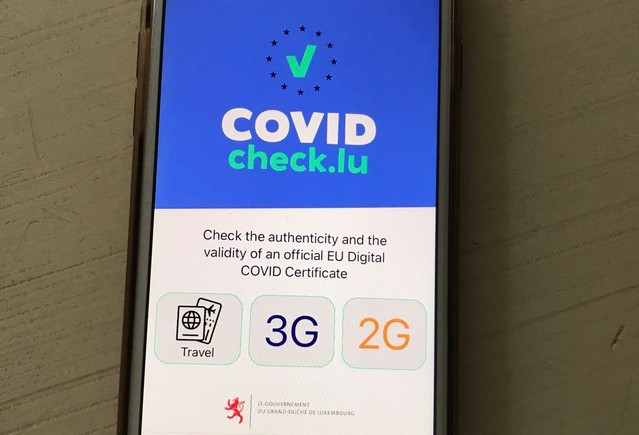The council reviews all draft laws submitted to parliament, whether they are for new laws or changes to existing texts. It formulates opinions and in some cases proposes alternatives if it does not agree with aspects of a particular bill. It can also issue formal opposition if it finds the text to violate the constitution or higher laws.
The council said that a switch from the 3G to a 2G CovidCheck model “does not constitute a disproportionate interference with individual freedoms, particularly in that the intrusion into the private sphere is limited to conditioning access to leisure activities, which are therefore neither essential nor belong to the sphere of fundamental rights.” Public health was more important in the balance, “in view of the proven risks posed by the covid-19 pandemic.”
The 3G CovidCheck includes testing as a valid certificate in addition to vaccination and recovery.
Clarification of the identity document
The Council of State also validates the obligation for the operator of an establishment under CovidCheck to verify the identity of its customers. It simply specifies that the notion of identity document does not only concern cards and passports, but also other official documents, such as a driving licence or a student card with a photograph.
The possibility of keeping a list of vaccinated persons on a voluntary basis is “not in conflict with the GDPR or with Article 11(3) of the Constitution or other legal provisions with a similar protective purpose,” it says.
This will be useful for employers, where mandatory CovidCheck will come into force on 15 January, to prevent them from having to scan certificates on a daily basis.
However, the council said that the law should come into force one day after it is officially published. “Citizens may not have the opportunity to adapt to the new rules. If the law is published in the evening, the measures that the draft law proposes to introduce may even surprise citizens in the course of activities that they will have begun before publication,” the council points out. It therefore asks that their application be postponed until the day after publication.
It also suggested that lawmakers should be more specific on sanctions for failure to provide a valid CovidCheck certificate to allow for effective monitoring.
This story was first published in French on . It has been translated and edited for Delano.
